Malaria is a serious but mainly preventable disease common in tropical and subtropical regions of the world. It’s a parasitic illness spread to humans through infected mosquito bites. Malaria is characterized by high fever and chills. Approximately 400,000 people die from malaria every year, and over 290 million people are infected with the disease annually.
Travelers going to regions with a high risk of malaria should follow preventative measures and take prophylactic medications to minimize the risk of contracting the disease. Travel Medicine Consultations offers pre-travel care, malaria prevention advice, and prophylactic medications to help you travel with peace of mind. If you’re traveling to Asia, Africa, Central America, or South America, please contact us for more information.
Symptoms of Malaria:
- High fevers
- Shaking chills
- General discomfort
- Headaches
- Vomiting and nausea
- Diarrhea
- Abdominal cramps
- Muscle and joint pains
- Rapid breathing
- Rapid heart rate
- Coughing fits
- Excessive sweating
- Fatigue and exhaustion
Malaria can be fatal, especially when caused by a specific plasmodium species (falciparum) of mosquitoes common in Africa. An individual may die from malaria because of cerebral malaria, breathing problems, organ failure, low blood sugar, or anemia. Some forms of malaria can also persist in the body for several years, leading to occasional recurrences.
What Causes Malaria?
Malaria is caused by a single-celled parasite transmitted to humans from an infected female mosquito. You can’t catch malaria directly from an infected person. However, if a mosquito draws blood from an infected person, it becomes an infected mosquito capable of transmitting the disease to you. Once the parasite enters your body, it travels to your liver, where it can lie dormant for up to a year. Subsequently, it matures and infects your red blood cells, leading to malaria.
Regions with the Highest Risk of Malaria:
- Sub-Saharan Africa
- South Asia
- Southeast Asia
- Pacific Islands
- Central America
- Northern South America
How Is Malaria Diagnosed?
Doctors usually suspect malaria if an individual displays the signs and symptoms of malaria and has recently been in a high-risk country. The most effective diagnostic technique is examining the individual’s blood under a microscope to identify the single-celled parasite associated with malaria. If you’re diagnosed with malaria, the doctor may proceed with treatment.
Tips to Prevent Malaria:
- Protect yourself from mosquito bites when traveling internationally
- Wear long-sleeved shirts and pants at all times
- Tuck your shirt and your pant legs into your socks
- Use EPA-registered insect repellants. See AVOIDING BUG BITES.
- Apply insect repellants on all of your clothing
- Sleep underneath mosquito nets treated with insecticides
Malaria Prevention & Treatment in NYC
Preventing malaria symptoms BEFORE they start is a much safer course of action than waiting for the disease to develop and then treating it. That’s why you should contact travel doctors before your trip at least a few weeks in advance for preventive medication prescriptions.
Travel Medicine Consultations helps all international travelers enjoy their trips (or have productive journeys, if travel is for business) by addressing potential health and safety issues before they become a problem. If you’re traveling to Africa, Asia, Central America, or South America, we can provide prophylactic medications to minimize the risk of malaria infections. If you are traveling for long periods of time to very high-risk areas that do not have adequate healthcare facilities, we can also provide malaria medications that can treat the disease, if you get sick despite preventive medication.
Please schedule a consultation with Dr. Julian Klapowitz for more information about malaria prevention and treatment.

